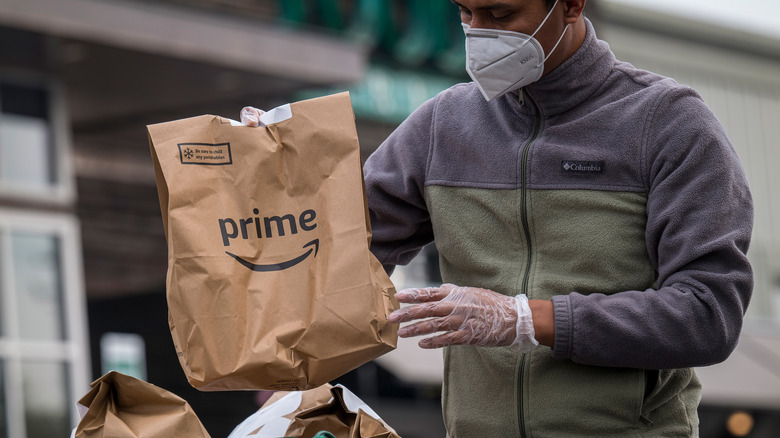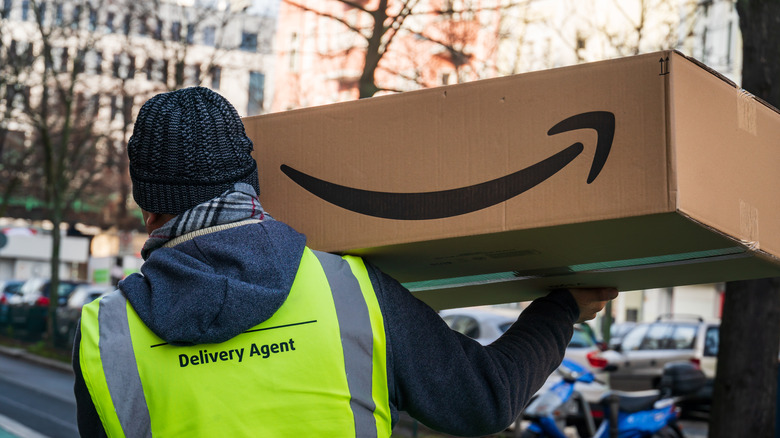Whole Foods Shoppers Are Suing Amazon In Class-Action Suits. Here's Why
It's tough to admit, but two-day shipping is convenient. It's nice. And, after a long day, it's also nice to kick back with a cooking show, many of which are available on Amazon Prime Video. But, is it worth the price of a Prime membership? According to data analytics platform Statista, there were 142.5 million existing Amazon Prime members in 2020, with projections to reach over 153 million members by the end of 2022. However, lately, signs point to "no," as in, definitely not worth it – and it's only getting worse for the online retail giant.
Earlier this year, Amazon doled out a 16% price increase on Prime memberships, raising the cost from $119 to $139 annually (or $12.99 monthly to $14.99), as reported by Insider. The new price was in effect for Prime members joining after February 18, and was then applied to existing members in late March, per the news outlet.
Recently, the company became the target of controversy after making Whole Foods employees feel uncomfortable and disenfranchised following the introduction of a new regiment of performance-monitoring technology. Now, Amazon is facing two newly proposed class-action lawsuits from outraged Whole Foods shoppers; though they filed separately, the two groups are suing the multinational tech company for the same reason. Here's why.
Prime, more like crime, according to WFM shoppers
In September 2021, Amazon notified Prime members via email that it would be terminating its free grocery delivery service, via The Seattle Times. Instead, customers would be required to pay an additional $9.95 "service fee" on all grocery deliveries moving forward.
Prior, Amazon had offered free grocery delivery on orders of $35 or more as a perk for Whole Foods shoppers with Prime subscriptions, after the company bought Whole Foods for $13 billion in 2018, per GeekWire. The service reportedly attracted substantial volume to the site during the COVID-19 pandemic's popularization of grocery deliveries. For revoking this service, the two class-action suits claim Amazon violated the Washington Consumer Protection Act for "engaging in unfair practices, for breach of contract, for breach of the duty of good faith and fair dealing, and for unjust enrichment," via Law Street Media.
"Hundreds of thousands, if not millions, of Amazon Prime members paid for a membership because they wanted to take advantage of Prime's free Whole Foods delivery service," says one of the class-action suits against Amazon, via lawsuit coverage site Top Class Actions. "As a result of Amazon's unfair business practices, consumers paid $119 for a service that was unfairly terminated." It maintains that Amazon breached its membership contract by not offering a refund or even a lowered subscription fee after revoking delivery services. The other lawsuit accuses Amazon of intentionally orchestrating a "bait-and-switch advertising scheme" by concealing additional fees until after consumers have already subscribed, per Food & Wine.

